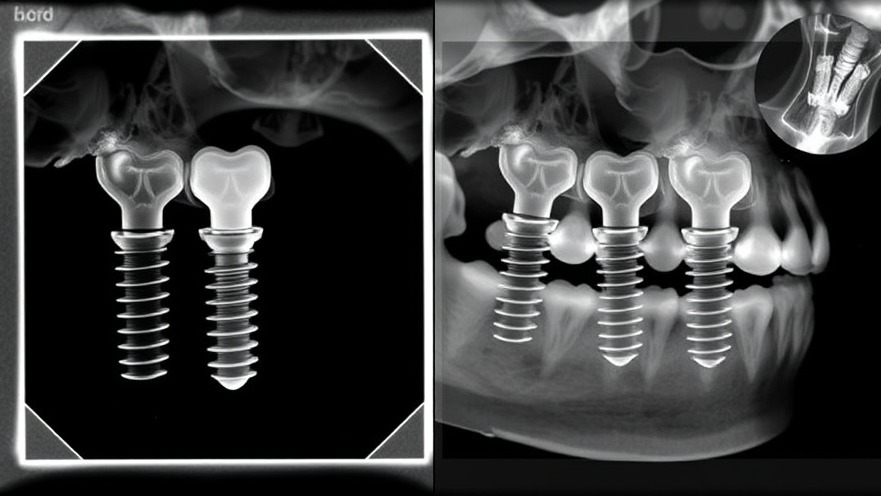
The Longevity of Dental Implants: What New Research Reveals
Dental implants, widely recognized as a reliable solution for replacing missing teeth, continue to demonstrate remarkable longevity, especially in light of groundbreaking research conducted by the University of Gothenburg. A recent study confirms that single dental implants have remained functional for nearly 40 years, showcasing their effectiveness and durability.
Understanding the Research: A 40-Year Follow-Up Study
This study stands as the longest follow-up evaluation of single dental implants globally, involving patients who received their implants from 1982 to 1985. Out of 16 original patients, 13 participated in the follow-up, allowing researchers to assess 18 implants. Perhaps the most striking finding is that all the implants were still in place and functioning at the 40-year mark, reflecting a cumulative survival rate of 95.6%.
Decoding the Functionality of Implants
The implants examined were placed using a surgical technique pioneered by Professor Per-Ingvar Brånemark, whose innovative work laid the foundation for modern implantology. The results of the study, published in Clinical Implant Dentistry and Related Research, indicate that the implants not only remained stable over the decades but that the surrounding bone showed minimal loss. The marginal bone levels (MBLs) changed only slightly, which is pivotal for long-term implant success.
Comparing Implants and Crowns: A Study Highlight
While the implants themselves showed high survival rates, the same could not be said for the crowns attached to them. Only 60% of the initial crowns remained functional after 40 years, with most replacements attributed to aesthetic concerns rather than technical failures. This illustrates a vital point: while the underlying implant is stable, the temporary nature of crowns demands ongoing attention and care.
Implications for Concierge Health Practitioners
For health practitioners dedicated to delivering cutting-edge patient care, these findings underscore the importance of understanding implant longevity and the factors influencing crown replacement. While the data indicates that implants can serve patients well over decades, clinicians should prepare patients for the possibility of crown replacements.
Insights for Future Treatments
As dental technology evolves, so too do the materials and techniques used in implant procedures. The study suggests a need for further improvement in crown materials to enhance their lifespan. Innovations in this field could lead to even better aesthetic outcomes and technical performance.
Patient Education: Essential for Long-Term Success
This research provides a clear benefit for patient education. Healthcare providers should inform patients not only about the expected longevity of their implants but also about the continuous care and maintenance required to ensure their aesthetic components hold up over time. Regular dental check-ups and attention to oral hygiene can significantly influence the success of implant-supported restorations.
Future Trends in Dental Implants
Learners and professionals in the field should remain aware of trends towards faster treatment times. Current principles allow for expedited processes that may inadvertently increase risks. Balancing patient desires for quicker solutions with the proven results of traditional methods will be critical for future care.
Conclusion: A Bright Outlook for Implant Dentistry
The longevity of single dental implants, as highlighted by this 40-year study, reinforces their role in modern dentistry. The findings illustrate that while the implants themselves can endure, ongoing attention to crown aesthetics remains necessary. For practitioners catering to discerning patients, staying informed on advancements in dental implants and restorative techniques is vital.
Consider discussing these findings with your patients and ensuring they understand the importance of routine care and the potential need for crown replacements. With well-informed patients and cutting-edge practices, the prospects for dental implants will continue to shine.
 Add Row
Add Row  Add
Add 






Write A Comment